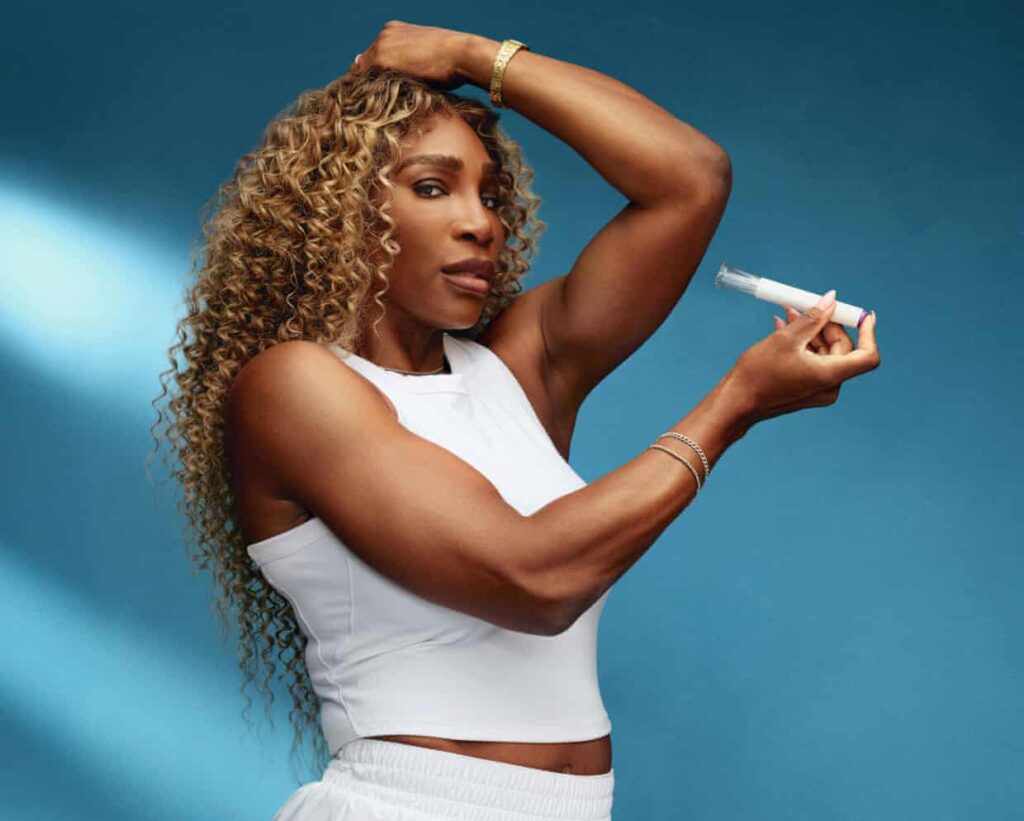
UPDATE: Just hours ago, tennis legend Serena Williams made headlines by revealing her dramatic 31-pound weight loss in a highly coordinated media blitz. This promotional campaign, linked to her partnership with telehealth company Ro, aligns closely with the upcoming US Open, which kicks off this Sunday.
Williams’ media appearances included segments on Vogue, NBC’s Today Show, and Elle, all emphasizing her desire to destigmatize weight-loss drugs like Ozempic, Wegovy, and Zepbound. However, critics are questioning the motivations behind her endorsement, which some perceive as a shift from her legacy of defiance against narrow beauty standards.
In her interviews, Williams stated, “After kids, it’s the medicine my body needed,” highlighting her struggle to maintain a healthy weight despite rigorous training and exercise. Zach Reitano, Ro’s CEO, noted that Williams was chosen precisely because she embodies the message that GLP-1 medications can benefit individuals who may not fit the typical patient profile.
Social media reactions have been mixed, with many fans expressing concern. Some worry that if even one of the greatest athletes of all time needs pharmaceutical assistance to achieve her weight goals, it sends a discouraging message to everyday individuals. Others have criticized her collaboration with Ro, claiming it undermines her history of challenging beauty norms and contributing to a culture that promotes unrealistic expectations.
Williams’ partnership with Ro is not just a one-time campaign; it is part of a multiyear initiative that includes advertisements across various platforms. This shift in her public persona raises questions about the implications of celebrity endorsements for weight-loss drugs, which are becoming increasingly mainstream. According to recent estimates from PricewaterhouseCoopers, between 8% and 10% of Americans are now using GLP-1 medications, a stark indication of their rising popularity.
Critics argue that Williams’ endorsement could further normalize the use of weight-loss drugs, potentially leading to over-prescription and neglecting the broader issues of healthcare disparities, particularly for Black women. Williams herself has faced significant health challenges, including life-threatening complications from childbirth, which makes her endorsement of a profit-driven weight-loss enterprise particularly contentious.
As Williams continues to navigate her dual identity as a sports icon and a businesswoman, her partnership with Ro symbolizes a larger trend where celebrities, including figures like Oprah Winfrey and Amy Schumer, have begun to embrace GLP-1 medications. While these drugs can be transformative for individuals with obesity or diabetes, the glamorization of their use by high-profile figures raises critical ethical questions about body image and societal standards.
The emotional impact of this campaign is palpable, as Williams, once celebrated for her muscular physique and defiance of beauty norms, appears to be aligning herself with a culture of weight loss that many see as detrimental. Her fans are left to grapple with the implications of this partnership, questioning whether it diminishes her legacy as an athlete who broke barriers for women and people of color in sports.
As this story develops, many will be watching closely to see how Williams’ endorsement affects public perceptions of weight-loss drugs and their role in health and wellness. The broader conversation about body image, health, and celebrity influence continues to unfold, making this an urgent topic for discussion.






